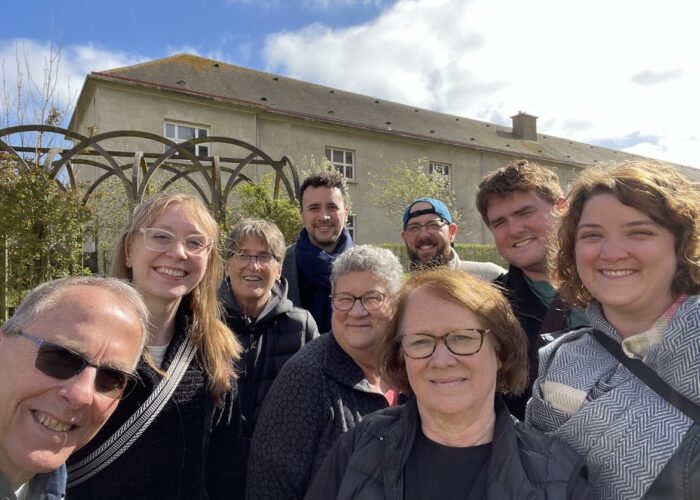A Mennonite Mission Network staff person in the United States discovers vibrant congregations in Paris, France, one of the world’s most secular cities.
In September, I had the privilege of joining a group that traveled to Paris, France, to learn more about Matthew and Toni Krabill’s ministry through Mennonite Mission Network. This trip was incredible, not only for the beautiful sightseeing, but especially for the rich perspective I gained about the context in which the Krabills work. As I reflected on this experience, one of the most impactful realizations for me was the discussion about what it means to be a Christian in France.
In my time working at Mission Network, I have heard many times of the secularization of Europe, and what makes it a place that is looking for the message of Christ. I did not, however, understand the arc of history that led to this current reality. Neal Blough, who served 45 years with Mission Network in Paris and continues to live there after his retirement from the agency, told us that the secularization of Europe comes from how it was ‘Christianized.’
Blough described how many people were forced into Christianity through conquering. Of course, this was not always the case, but we learned that the bloody history of Christianity has caused most people to move as far from the church as possible. Because the church and state were so closely intertwined, when the French Revolution came to a head in the late 1700s, no one wanted anything to do with the church. It was, after all, seen as an extension of the monarchy they were trying to overthrow. As a result of this split, France is one of the most secular European countries today. It is even illegal to display any form of religion outwardly when you are working with the public. What a shock for those of us living in a country where church and state often seem to run together!
God, however, is very much at work in France. Matthew and Toni Krabill showed us throughout the week how many African immigrants are coming to France and bringing their Christian faith along with them. We got a chance to visit Impact Centre Chrétien (ICC — Christian Impact Center), an African immigrant megachurch in the suburbs of Paris. ICC’s motto is "Transforming ordinary people into disciples of Jesus Christ." Young people flock into the two high-tech Sunday morning services that can require a two-hour commute by public transportation. My own drive of five minutes to attend church now takes on a whole different meaning to me! ICC’s worship style seems to be connecting, because the church has grown into 70 branches throughout France, and even more within other French-speaking nations. The congregation also hosts an online community.
The Krabills brought us full circle throughout the week, by teaching us the history of the church in Europe that has paved the way for the new emerging churches popping up in France and across Europe. Matthew Krabill said that Mennonites from the United States often come to Europe for Anabaptist heritage tours, but they don’t get to hear or learn about the context of the French Mennonite church today. That really stuck with me. As someone who has participated in such a tour, I think he has a point! This trip has opened my eyes to the current work of the Anabaptists in France and French-speaking nations, as well as the history that brought them to this point.
The global church is alive in "post-Christendom" France! What a gift to be able to experience it firsthand!





